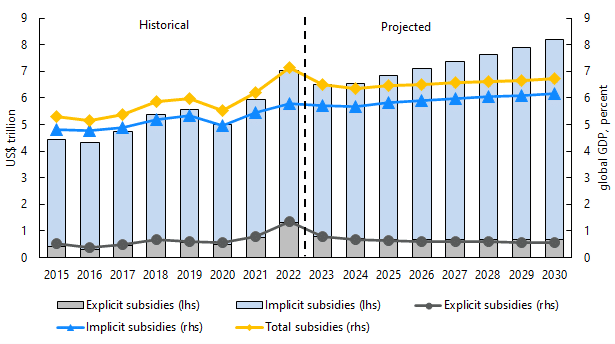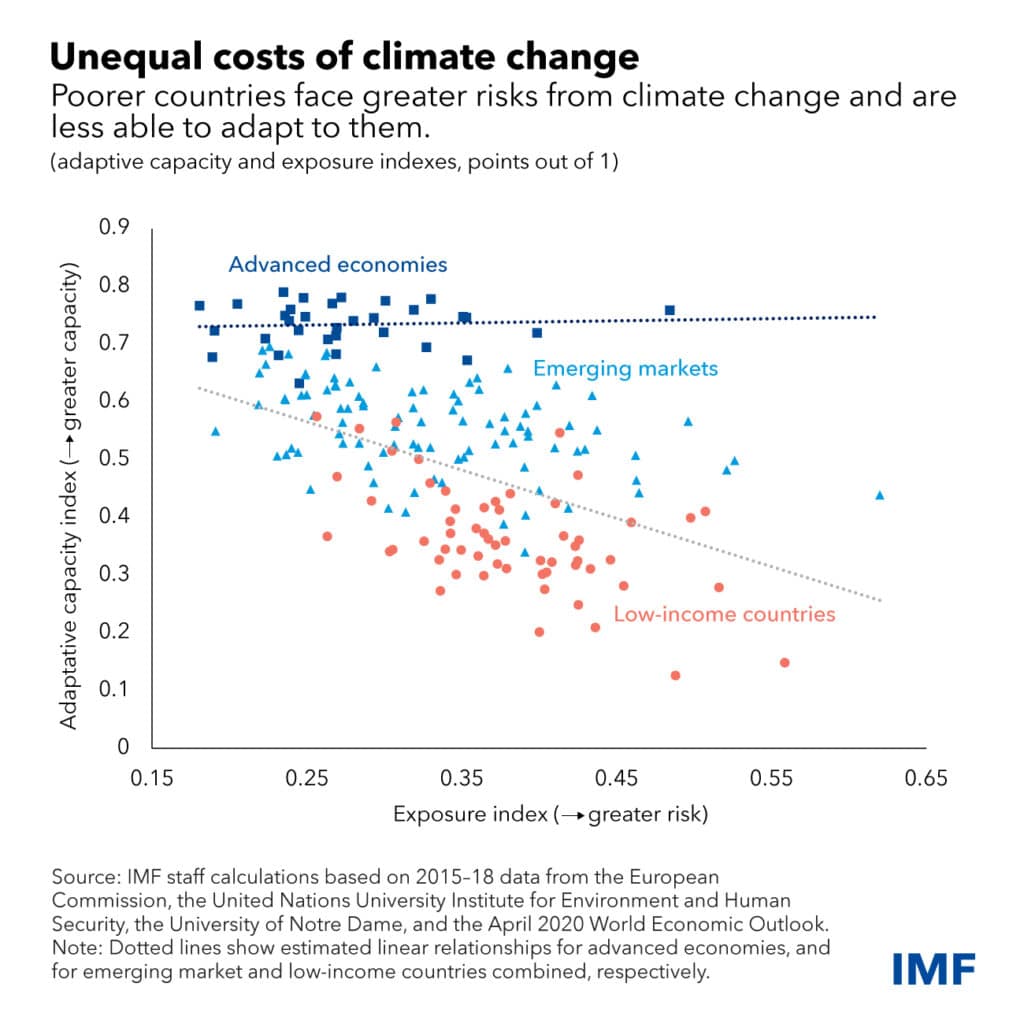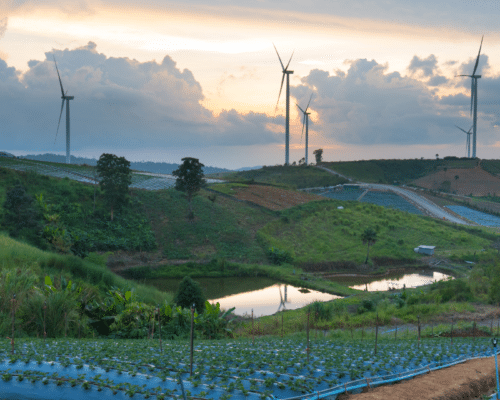How COP28 Failed to Deliver on the Climate Crisis
01 January 2024 – by Viktor Tachev Comments (0)
Was COP28 A Success?
At COP28 Dubai, nations called for countries to “transition away” from coal, oil, and gas. The decision was celebrated, with COP28 President Dr. Sultan Al Jaber saying in his closing speech: “We have worked very hard to secure a better future for our people and our planet. We should be proud of our historic achievement.” However, no end date, pledged financing or concrete targets exist. All this when the UN says that current policies are taking global temperatures on course to a 2.9°C rise above pre-industrial levels – nearly twice the Paris Agreement target.
COP28 UAE’s Final Text: Few Mitigation Measure Wins and Weak Fossil Fuel Language
The final text of COP28 UAE, or the Global Stocktake, underwent six drafts before it was approved. The agreement demonstrates strong ambition in various aspects. For example, it calls for a tripling of renewable energy capacity and a doubling in energy efficiency improvements by 2030. It also operationalised the loss and damage fund. The text also advocates using carbon capture and storage (CCS) technologies in hard-to-abate sectors. Additionally, it repeats COP27’s call for phasing down unabated coal power to reduce global emissions.
It pushes for a transition towards net-zero energy systems that utilise zero and low-carbon fuels by 2050. The fuel sources include renewable energy, nuclear, CCUS and low-carbon hydrogen.
The text “recognises” transitional fuels as a tool to facilitate the energy transition “while ensuring energy security”. It also calls for accelerating and substantially reducing non-CO2 emissions, including methane, by 2030, and it urges the phasing out of inefficient fossil fuel subsidies as soon as possible.
However, the highlight of the agreement is the call to transition away from fossil fuels in energy systems “in a just, orderly and equitable manner, accelerating action in this critical decade“.
Loopholes Eclipse the Few Good Moments
The final version of the agreement still doesn’t go far enough to capture the urgency of the climate emergency. When addressing fossil fuels, it uses vague language, giving polluters enough loopholes to exploit and continue doing business as usual.
“The new GST text fundamentally puts 1.5°C out of reach,” warns Climate Analytics CEO Bill Hare. “Every single thing you could think of that the fossil fuel industry would want is in there,” he adds.
Transitioning Away From Fossil Fuels in ‘Energy Systems’
Ignoring the calls from over 130 countries for the complete phaseout of fossil fuels, the text instead urges for transitioning away from fossil fuels in “energy systems”.
Alternatively, this means heat and electricity generation only. There is no mention of integral sectors like heavy industry, for example.
Furthermore, the final text won’t force developed countries and fossil fuel producers to align with climate science. The GST isn’t just filled with loopholes, but it is also a step backwards from the text in the Glasgow Climate Pact regarding coal.
“This text alone might help avoid disaster in Dubai, but it doesn’t avoid disaster for the planet,” warns Tom Evans, policy adviser for E3G.
Use of Questionable Technologies That Will Extend the Life of Fossil Fuels
The COP28 text recognises the need for “deep, rapid and sustained” emissions reductions. Yet, it proceeds to list solutions that will fail to achieve that.
It supports using CCS, an expensive technology with limited decarbonisation potential. The adoption of CCS will end up allowing extended fossil fuel use, so there’s no end of the fossil fuel era in sight. According to COP26 President Alok Sharma, no abatement technology can help reduce emissions to over 40% by 2030 to keep the 1.5°C target alive.
Furthermore, the phrase “transitional fuels” opens the door for increased natural gas use – the largest source of growth in global emissions in the last decade.
Phasing Out ‘Inefficient Fossil Fuel Subsidies’
The word “inefficient” in the call to phase out fossil fuel subsidies leaves the door open for broad interpretation. Inefficient subsidies don’t address energy poverty or ensure just transitions. All this when fossil fuel subsidies in 2022 topped USD 7 trillion, the highest ever. According to the IMF, they will continue to increase in the future.

Insufficient Financial Support to Developing and Climate-vulnerable Nations
Apart from failing to ensure a fossil fuel phaseout, COP28 didn’t mark enough progress on the trillions in financial support for adaptation, mitigation and loss and damage needed by developing nations. The Loss and Damage fund pledges are highly insufficient compared to the actual needs of frontline communities.
A Failed Lead-up
In the lead-up to COP28, signs that the climate conference wouldn’t produce the desired results were apparent. Despite the COP28 president stating that failure wasn’t an option, the conference’s convoluted final text left many disappointed.
The Host’s Controversies
The election of Dr. Sultan Al Jaber, the chief executive of the state-owned Abu Dhabi National Oil Company (ADNOC), as COP28’s president, raised many eyebrows. His initial remarks, stating that the phaseout of fossil fuels would take the world “back into caves”, made headlines worldwide.
ADNOC has planned a USD 150 billion investment in oil and gas expansion. According to the IEA, 90% of the 7.5 billion barrels of oil that ADNOC plans to produce must remain in the ground to achieve net-zero targets.
Furthermore, an investigation by the Centre for Climate Reporting and BBC News alleged the UAE plans to use the COP presidency to strike secret oil and gas deals.
Strong Opposition From Petrostates
Days before COP28, the Centre for Climate Reporting published an undercover investigation revealing Saudi Arabia’s plans to undo progress on the oil phaseout by financing high-carbon infrastructure across Africa and Asia. According to the analysis, Saudi Arabia, the world’s third-leading fossil fuel producer and second-biggest oil producer, had designed an entire investment program to tackle the world’s efforts to reduce oil demand and address climate change. The country also plans to lobby against government subsidies for electric vehicles in countries worldwide.
In the run-up to the conference, Saudi Arabia’s energy minister publicly admitted that the country wouldn’t back a text that calls for the phasedown of fossil fuels. During the conference, along with other petrostates, Saudi Arabia reportedly advocated excluding all fossil fuel language from the final agreement.
Together with the US, petrostates emerged as the countries most strongly against language to phase out fossil fuels.
According to the journalists present at the discussions, Saudi Arabia attempted to introduce references to CCS at every opportunity. Furthermore, it tried to add the word “emissions” after fossil fuels in any reference to their phaseout or phasedown.
Bloomberg also reported on an organised campaign by the OPEC leadership for member countries to “proactively reject” any COP28 agreements targeting fossil fuels.
The Biggest Fossil Fuel Lobby at a Climate Change Conference to Date
Analysis by the Kick Big Polluters Out coalition revealed that COP28 welcomed over four times more fossil fuel lobbyists than the previous record number at COP27. They outnumbered Indigenous leaders, a group that this year’s Presidency dubbed as the voices to prioritise from COP28 to COP30.
Over 160 influential industry trade groups, think tanks and PR agencies with a track record in climate denialism were at the climate talks.
The number of fossil fuel industry representatives at the conference exceeded even the combined total of the delegates of the 10 most climate-vulnerable countries.
The Failure of COP28: Aftermath
Global greenhouse gas emissions from coal, oil and gas continue to rise, reaching record highs. Petrostates are planning massive fossil fuel expansion, while regions found to be among the most vulnerable to global warming, like Southeast Asia, are likely to become the global hotspots of natural gas expansion.
All that when the IPCC and IEA warn against building new fossil fuel infrastructure to stand a chance at remaining below 1.5°C.
Scientists described the outcome of COP28 as the “dream outcome” for the fossil fuel industry and a “tragedy for the planet”.
“With every vague verb, every empty promise in the final text, millions more people will enter the front line of climate change, and many will die,” says Dr Friederike Otto, a climatologist at Imperial College London and co-founder of the World Weather Attribution group.
The UN Secretary-General António Guterres warned that the world is at “minutes to midnight” when it comes to the 1.5°C limit.
While leaders hide behind phrasing, the latest IPCC report warns that humanity is on its “final warning” to avoid irrevocable damage. Scientists find that 20 of the 35 vital planetary signs are now at their worst levels in history. As a result, by 2100, we risk having 3-6 billion people inhabiting unlivable regions, where they will encounter extreme heat and suffer from limited food availability and increased mortality rates.
The frontline communities and people in developing countries and low-lying island nations will be the most affected. Yet, as COP28 revealed, they remain underrepresented in decision-making processes.

“They parade as climate champions while our people and communities in the Global South suffer the fallout of a crisis we didn’t create,” says Wanun Permpibul of Climate Watch Thailand.
Ignore the Fanfare: COP28 Failed to Deliver
The outcome of COP28 2023 could have been a success if it had happened a decade or two ago. However, admitting the obvious after 28 climate conferences and tens of thousands of pages of scientific research is hardly worth the fanfare. Clutching at straws to describe a mere mention of fossil fuels in the hottest year on record and when the world is heading for a 2.9°C temperature rise won’t help frontline communities. Real action, concrete timelines and binding commitments will.
Governments and markets must start transitioning from fossil fuels to renewables now, especially with the next round of NDC updates due by 2025.
by Viktor Tachev
Viktor has years of experience in financial markets and energy finance, working as a marketing consultant and content creator for leading institutions, NGOs, and tech startups. He is a regular contributor to knowledge hubs and magazines, tackling the latest trends in sustainability and green energy.
Read more



